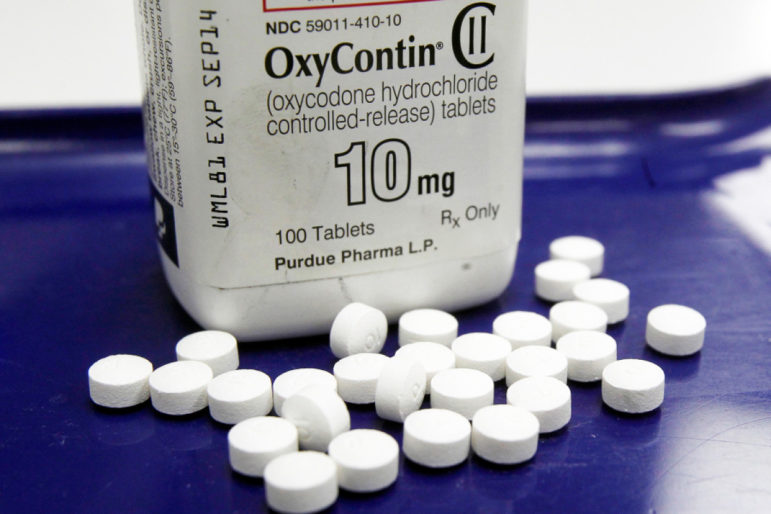$ 8.3 Billion Purdue Pharma Settlement “Unacceptable” AG Tong Slams DOJ Settlement with Purdue Pharma
In a deal quickly criticized Wednesday by Connecticut attorney general, William Tong, Stamford-based Purdue Pharma agreed to plead guilty to three federal criminal charges relating to its production and marketing of Oxycontin in a $ 8.3 billion settlement with the Department of Justice.
“The abuse and diversion of prescription opioids has contributed to a national tragedy of addiction and death, in addition to those caused by illicit street opioids,” said US Deputy Attorney General Jeffrey A. Rosen. “With pleas of criminal guilty, a federal settlement of more than $ 8 billion, and the dissolution of a company and reallocation of its assets entirely to benefit the public, the resolution in today’s announcement reaffirms that the Department of Justice will not give in in its multi-efforts on several fronts to fight against the opioid crisis.
Tong, however, called the deal between Purdue Pharma and the Justice Department “unacceptable.”
“This settlement provides a mere mirage of justice for the victims of Purdue’s ruthless misconduct,” Tong said. “The federal government had the power here to put the Sacklers in jail, and they didn’t. Instead, they took fines and penalties that Purdue will likely never pay in full. “
Purdue Pharma is bankrupt, and the settlement could be paid on pennies on the dollar, behind claims from other creditors.
“Every dollar paid here is a dollar less for states like Connecticut that are trying to maximize Purdue and Sackler money to reduce the opioid epidemic,” Tong said. “The timing of this deal just weeks before the election raises serious questions about whether the political leadership of the Department of Justice was negotiating in the best interests of the American public.”
Steve Miller, chairman of the board of Purdue, said in a statement Wednesday that the company “deeply regrets and accepts responsibility” for the misconduct described in the deal with the DOJ.
“It is important to note that the overwhelming majority of these settlement funds will be directed to state, local and tribal governments to address the opioid crisis,” he said, adding, “The deal The settlement will pave the way for Purdue to submit a reorganization plan to bankruptcy court that will transfer all of Purdue’s assets to a public benefit corporation and ultimately bring in more than $ 10 billion in value to claimants and communities.
The state will continue to pursue its civil lawsuit against Purdue Pharma in state court. That case was cut short by Purdue’s bankruptcy filing last year.
Connecticut sued Purdue in December 2018, alleging that the company’s aggressive marketing of Oxycontin had contributed significantly to the opioid epidemic in the country, as well as drug addiction and deaths in the state.
Last year, Tong filed an expanded and amended lawsuit against Purdue, members of the Sackler family, former members of the Purdue board of directors and company executives, alleging they had fraudulently transferred hundreds of millions of dollars from Purdue Pharma to the Sacklers to evade responsibility and liability. Dozens of other state attorneys general have also sued the Sacklers.
According to the Justice Department, Purdue Pharma has agreed to plead guilty to violating federal monitoring requirements for the promotion and sales of Oxycontin and making false claims to Medicare and Medicaid.
The company, which made millions of OxyContin tablets during the height of the opioid pandemic, has been accused of marketing and bribing doctors in violation of federal law.
In a press conference Wednesday, US attorney from Vermont Christina Nolan said Purdue’s marketing department was indeed “in the exam room with their thumbs on the scales” when doctors made decisions about the health of their patient.
Rosen said the Sackler family, owners of Purdue Pharma, agreed to a civil settlement of $ 225 million.
“It is important to know that this resolution does not exclude future criminal or civil sanctions against officers or employees of Purdue Pharma,” said Rosen.
The deal with the Justice Department includes a criminal fine of over $ 3.5 billion and $ 2 billion in criminal forfeiture, plus a civil settlement of $ 2.8 billion, in addition to the $ 225 million that the Sacklers agreed to pay.
The deal also requires the dissolution of Purdue Pharma and requires the Sacklers to relinquish any ownership or control of the successor company. This new company would operate as a trust “for the benefit of the American public,” Rosen said.
Tong rejected the idea that Purdue could be turned into a company that works for the public good.
“Preserving Purdue’s ability to continue selling opioids as a public benefit business is simply unacceptable,” he said.


Comments are closed.